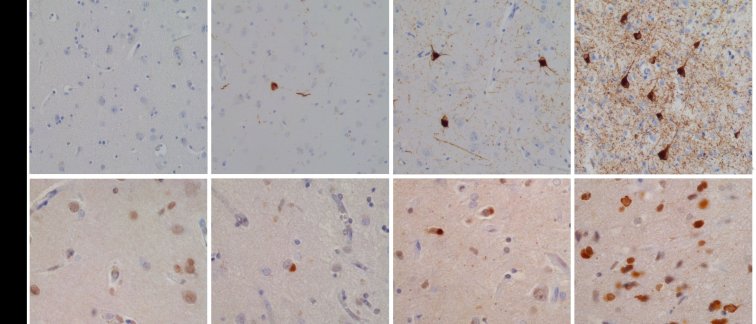Link between psychiatric symptoms and protein stacks
Under supervision of Professor Yolande Pijnenburg and Assistant Professor Anke Dijkstra, Dr. Scarioni and her colleagues investigated the psychiatric symptoms of frontotemporal dementia and the brain regions where pathological protein accumulations are found. Their research shows that the protein stacks are present all throughout the brain, including the deeper brain structures. “We see a link with psychiatric symptoms, such as hallucinations, and the deeper regions of the brain, such as the hippocampus,” says Marta Scarioni.
First signs of FTD
Because psychiatric symptoms are common in patients with frontotemporal dementia, it can happen patients receive a psychiatric diagnosis at first. This puts a lot of pressure on the lives of patients and their loved ones. The study of Marta Scarioni shows that psychiatric symptoms can occur early in the course of the disease and are a part of frontotemporal dementia. “Now that we know this, we can better diagnose patients with psychiatric symptoms and develop targeted therapies in the future,” Professor Yolande Pijnenburg explains.
Classification of brain donors with FTD
In collaboration with the Nederlandse Hersenbank, we reclassified 87 brain donors with frontotemporal dementia according to the new pathological guidelines. “We wanted to investigate the pathology of frontotemporal dementia in detail, so we visualized the protein stacks of each brain donor in twenty different brain regions and examined them extensively with the microscope.” said colleague Priya Gami-Patel. “The relationship between visible symptoms of frontotemporal dementia and the invisible underlying pathology is not yet known, and we need to think out-of-the-box to understand this complex disease,” says neurologist Marta Scarioni.
Dr. Anke Dijkstra, recipient of a Memorable ZonMw Grant for her research on frontotemporal dementia, is enthusiastic: “We not only investigated the typical FTD pathological protein accumulations, but also protein accumulations that are not associated with frontotemporal dementia, and whose clinical significance is not yet known. We showed for the first time that these other non-FTD protein stacks also contribute to the development of symptoms of frontotemporal dementia.”

